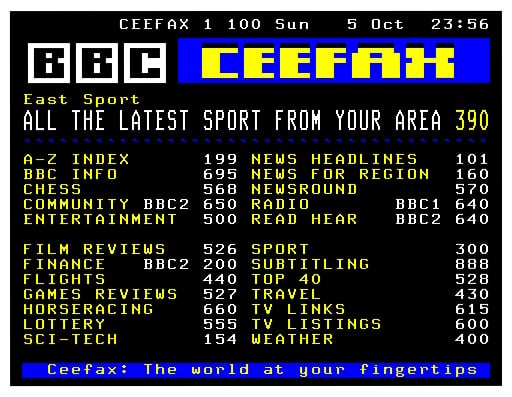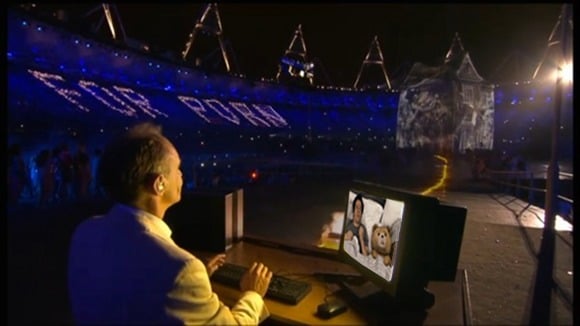This article is more than 1 year old
Think beyond the Beeb: Gov consultation is crucial for free telly
Channelling some answers for Auntie
Other questions
There are, of course, a lot of other questions worth answering. Question 6 wonders about the BBC's role in the “future technological landscape,” and it's worth bearing in mind that without it, huge chunks of the current landscape wouldn't exist – from Teletext and RDS to DVB-T2 and object audio, the BBC continues to be hugely influential.
A fraction of the BBC's budget – just £83m last year – goes on this work, which has massive benefits. Of course, new technology can have an impact on the competition, but surely far less than if it were owned and exploited by a commercial competitor, rather than shared as easily as the BBC?

Teletext, NICAM, RDS, DVB-T2 and much more have come out of the BBC's labs
Question 9 asks if the BBC's content is sufficiently high quality and distinctive – something that cuts to the heart of debate. Should Auntie make programmes that are popular enough other people could make them? Or should it make only “worthy” things that we can all agree are important, and cater to a few people who want to learn about renaissance art? And if it does, won't the next review start with someone saying “Well, hardly anyone watches any more, so let's get rid of it?”
That's also the theme of question 3 – what's universality? Should the BBC “unify” us around events like the Olympics, should it be available on as many platforms as possible, or should it cater to everyone's tastes? It's hard, I think, to conclude other than that it should cater to everyone, and be available as broadly as possible.
Free-to-air broadcasting is, in my view, one of the key issues for this charter renewal, and not just on the BBC. Longer term, many people expect that by the 2030s or so, a lot more media will be delivered online, rather than by broadcast. A ten year charter will run out in 2027, and question 19 of the consultation asks if the current approach should continue.

Is the BBC just for national events, or should it make programmes that are popular with everyone?
The Lamy report recommended safeguarding terrestrial spectrum until 2030. So, I think there's a good argument for a longer charter of 15 years, to take the BBC up 2032, allowing the stability to plan for a future beyond Freeview.
I'm pretty sure there'll be a fair number of Reg readers who'll disagree with some of these points. But whatever your views, I do think it is important to take the time to wade through the consultation document, and think about the proposals. And remember, while the questions may just be about the BBC, there could be dramatic consequences for the rest of UK broadcasting too. ®
